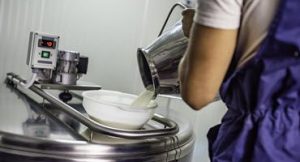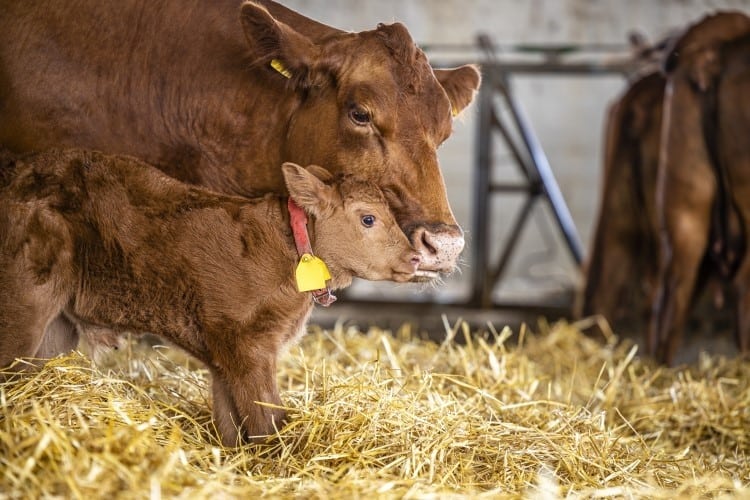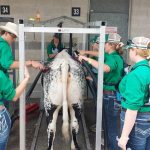
The product, which has been 10 years in the making and is now being marketed under the trade name ProPreg in the US, was developed by Canada’s University of Alberta. It is designed to keep the animal’s reproductive tract healthy and protect it from infection.
Research carried out by professor Burim Ametaj from the university’s Faculty of Agricultural, Life and Environmental Sciences in Canada has showed that there were benefits for dairy cows both before and after giving birth.
For example, the probiotic contributed to a 50% reduction in post-calving uterine infections; lowered the rate of milk fever by half, and reduced inflammation that typically leads to lameness. Calves also showed higher weight and better immunity four weeks after birth. In addition, cows that received the probiotic during the trials, increased their milk yield by 4-6L per day in the first 50 days after calving.
Since the probiotic is a natural product, it can be used as a preventative drug instead of administering antibiotics.
“Generally, the benefits to the animals are positive across the board,” said Ametaj. “The scientific results are amazing in terms of proactively lowering several important reproduction-related diseases in dairy cattle. The presence of more good bacteria helps prevent reproductive health issues from developing.”
The probiotic is drawn from three bacterial strains found in the reproductive tract of healthy cows. It works by supplying beneficial bacteria to the microbiome. And while probiotics are readily available to farmers as feed additives, the researchers say that due to the complexity of the cow’s rumen, there are a lot of variables at play.
“You have more control when dealing with the reproductive system, and to keep it balanced and healthy is a very different approach,” explained Alberta-based dairy producer Jeff Nonay, whose herd was involved in the research. Nonay also noticed a link between the probiotic and a higher quality and quantity of colostrum.
The preventative product has been field-tested on around 4,000 dairy cows in the US and small-scale sales have now started there. Plans are in motion to make the product available to Canadian farmers within two years.
The research was funded by Alberta Milk and the former Alberta Livestock and Meat Agency.
“Bacteria are a major contributor to many animal diseases, and we’ve now shown that using probiotics is an excellent way of treating disease,” concluded Ametaj.























